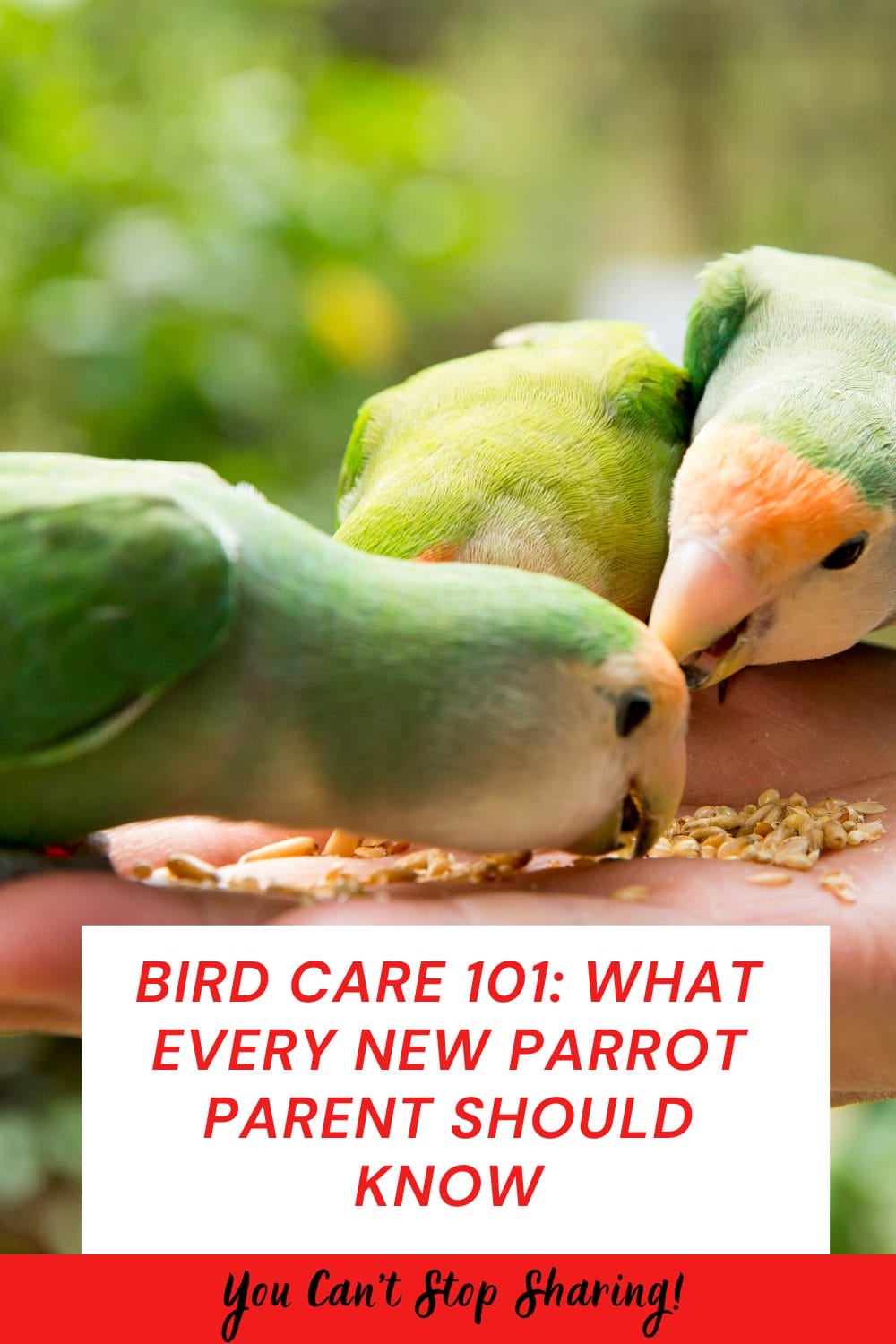
Bird Care 101 is always essential. Welcoming a parrot into your life is a thrilling and transformative experience. These intelligent, social, and vibrant creatures bring unmatched charm and companionship.
But along with the joy comes the responsibility. If you’re new to this, don’t worry — this comprehensive bird care 101 guide for beginners will walk you through everything you need to know to ensure your feathered friend thrives in their new home.
Why Parrot Care 101 is So Important
Parrots are more than just pets — they are complex creatures with unique physical, emotional, and social needs.
Providing proper bird care 101 is essential to prevent issues such as stress, boredom, malnutrition, and even behavioral disorders.
Unlike traditional pets, parrots often live for decades. Some species, like African Greys or Macaws, can live up to 60 years!
That’s a long-term commitment. New parrot owners must understand that parrots require more than just a cage and seeds; they need mental stimulation, healthy nutrition, a safe environment, and most importantly — love.
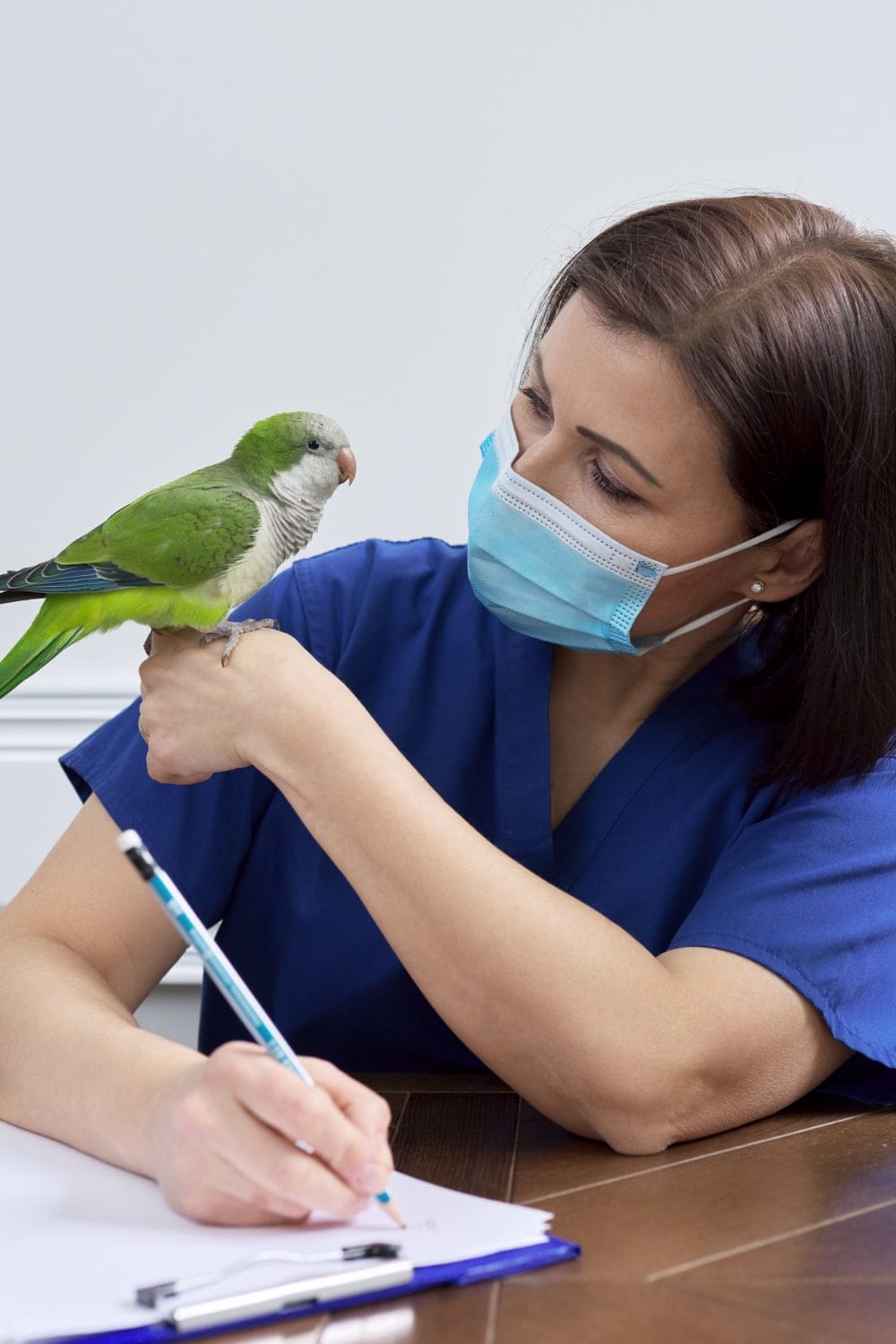
Common Mistakes New Parrot Parents Make
Before diving into how to care for your parrot, it’s essential to address some frequent missteps that many first-time bird owners unknowingly make:
Improper Diet
Feeding only seeds is a big no-no. Seeds are high in fat and lack many essential nutrients. Parrots need a varied diet including pellets, fruits, vegetables, and grains for balanced nutrition.
Small or Inadequate Cage
A tiny cage restricts a parrot’s movement and affects their mental health. Your parrot’s bird cage should be large enough for them to fully stretch their wings and move around comfortably.
Neglecting Social Interaction
Parrots are flock animals. They crave companionship. Lack of interaction can lead to loneliness and result in destructive behaviors like feather plucking or incessant screaming.
Ignoring Enrichment Needs
Bored parrots become stressed. Always provide parrot toys, puzzles, and opportunities to forage.
Not Understanding Body Language
Parrots communicate mostly through body language. Ignoring the signs of discomfort, stress, or happiness can create trust issues and even cause aggressive behavior.
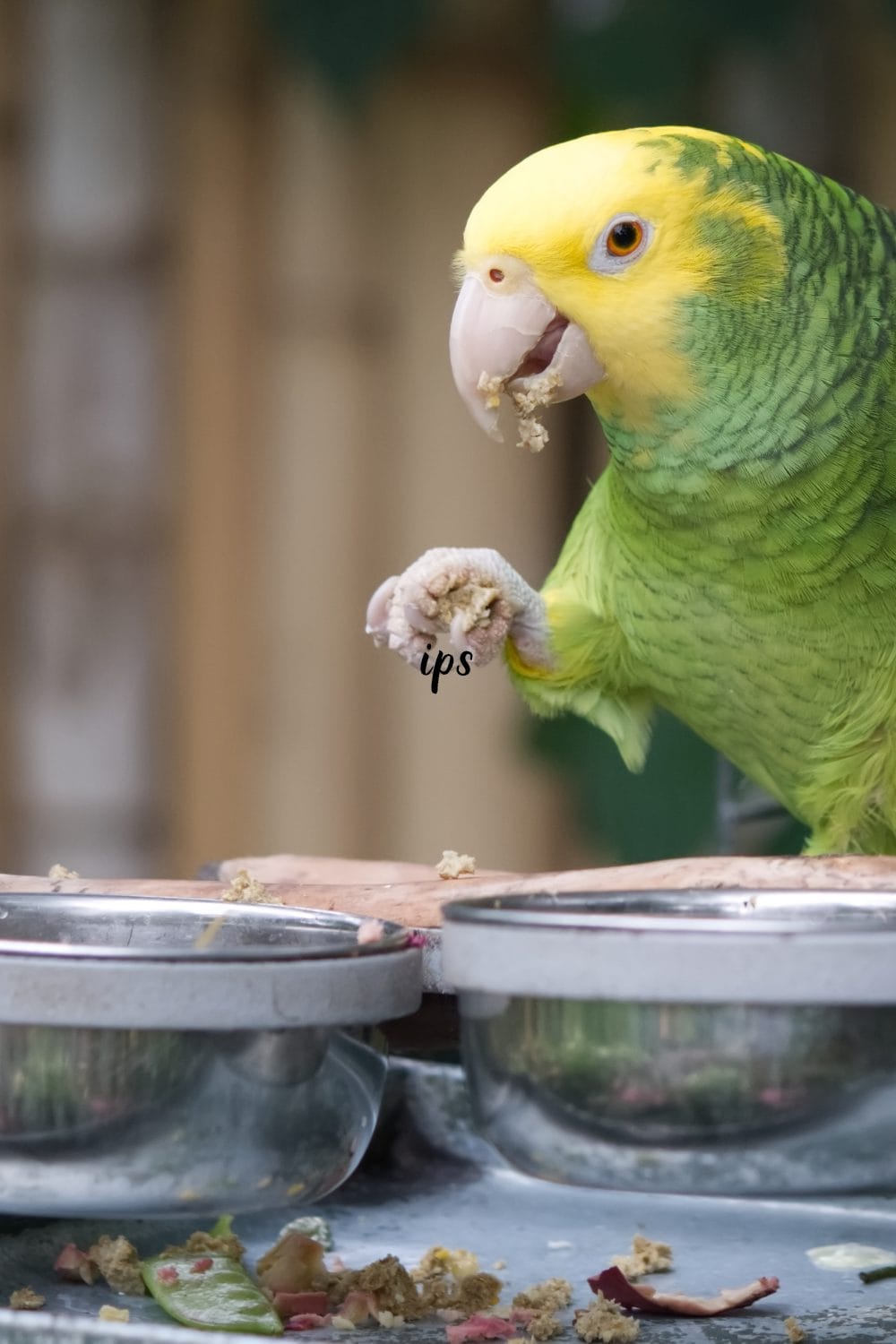
How to Take Care of Your Parrot as a New Parent
Here’s a detailed, step-by-step guide to caring for your new parrot:
Choose the Right Parrot Species
Not all parrots are the same. Some are louder, needier, or more challenging to train than others.
As a beginner, consider starting with parrot species for beginners like budgerigars (budgies), cockatiels, or green-cheeked conures.
Create a Safe and Stimulating Environment
Invest in a spacious cage that meets the minimum size requirements of your parrot species.
Place it in a family area where your parrot can feel included — but not too close to the kitchen (fumes can be deadly!).
Ensure the cage has:
- Perches of different textures and diameters
- Chewable parrot-safe toys
- Foraging opportunities
- Fresh water and clean food dishes
Provide a Balanced Diet
A healthy parrot diet should include:
- 60–70% high-quality pellets for parrots
- 20–30% fresh vegetables and fruits (e.g., bell peppers, carrots, apples, blueberries)
- Occasional whole grains and seeds as treats
Avoid: chocolate, avocado, caffeine, onions, and alcohol — all toxic to parrots.
Establish a Routine
Parrots thrive on routine. Set consistent wake-up, feeding, training, and bedtime schedules. Cover their cage at night to ensure 10–12 hours of sleep.
Train and Socialize Your Parrot
Training isn’t just for fun — it’s a way to bond and establish trust. Start with basic commands like “step up” and “stay”. Use positive reinforcement and never punish your parrot.
Socialize them with gentle handling and positive experiences to reduce stress and prevent future behavior issues.
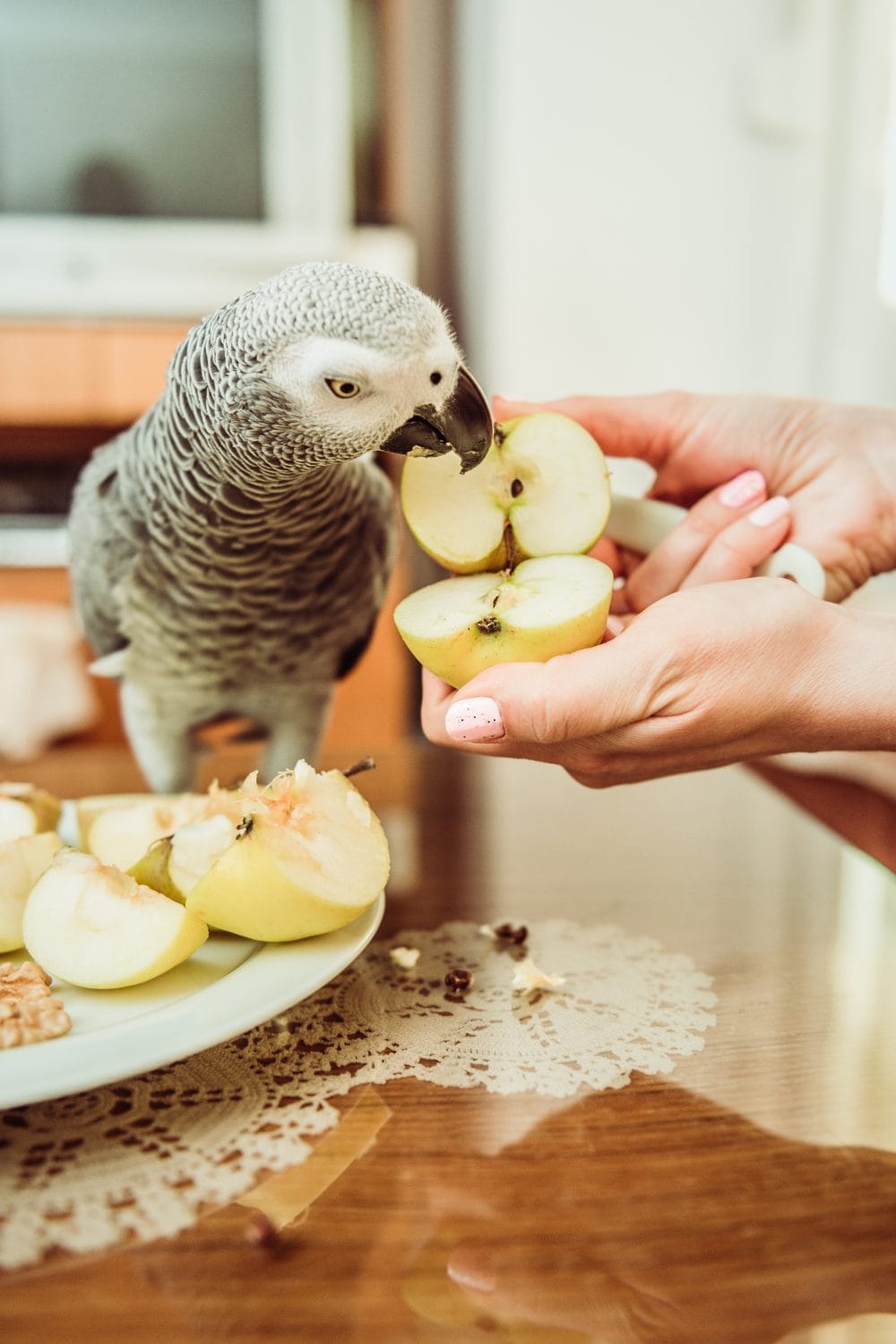
Prioritize Cleanliness
Hygiene is crucial. Clean food and water dishes daily, and spot-clean the cage every day. Do a thorough cleaning weekly.
Use bird-safe cleaning solutions — many household cleaners are toxic to birds.
Schedule Regular Vet Visits
Find an avian vet near you and schedule wellness check-ups at least once a year. Birds hide illness very well, so early detection is key.
Additional Things to Consider
Temperature & Humidity
Parrots are sensitive to drafts and extreme temperature changes. Keep them in a climate-controlled space with 40-60% humidity.
Natural Light and UV Exposure
Parrots need exposure to natural sunlight or full-spectrum lighting for vitamin D synthesis. Consider placing their cage near a window (without direct sunlight) or using a UV bird light.
Allowing Supervised Out-of-Cage Time
Parrots need regular time outside their cage to exercise and explore. Supervise them during these sessions to avoid accidents.
Mental Stimulation
Switch out toys regularly. Teach tricks. Introduce new foods. The goal is to keep their minds engaged.
Avoiding Common Household Hazards
Things like ceiling fans, open windows, electrical cords, non-stick cookware (Teflon), scented candles, and aerosol sprays can be fatal to parrots.
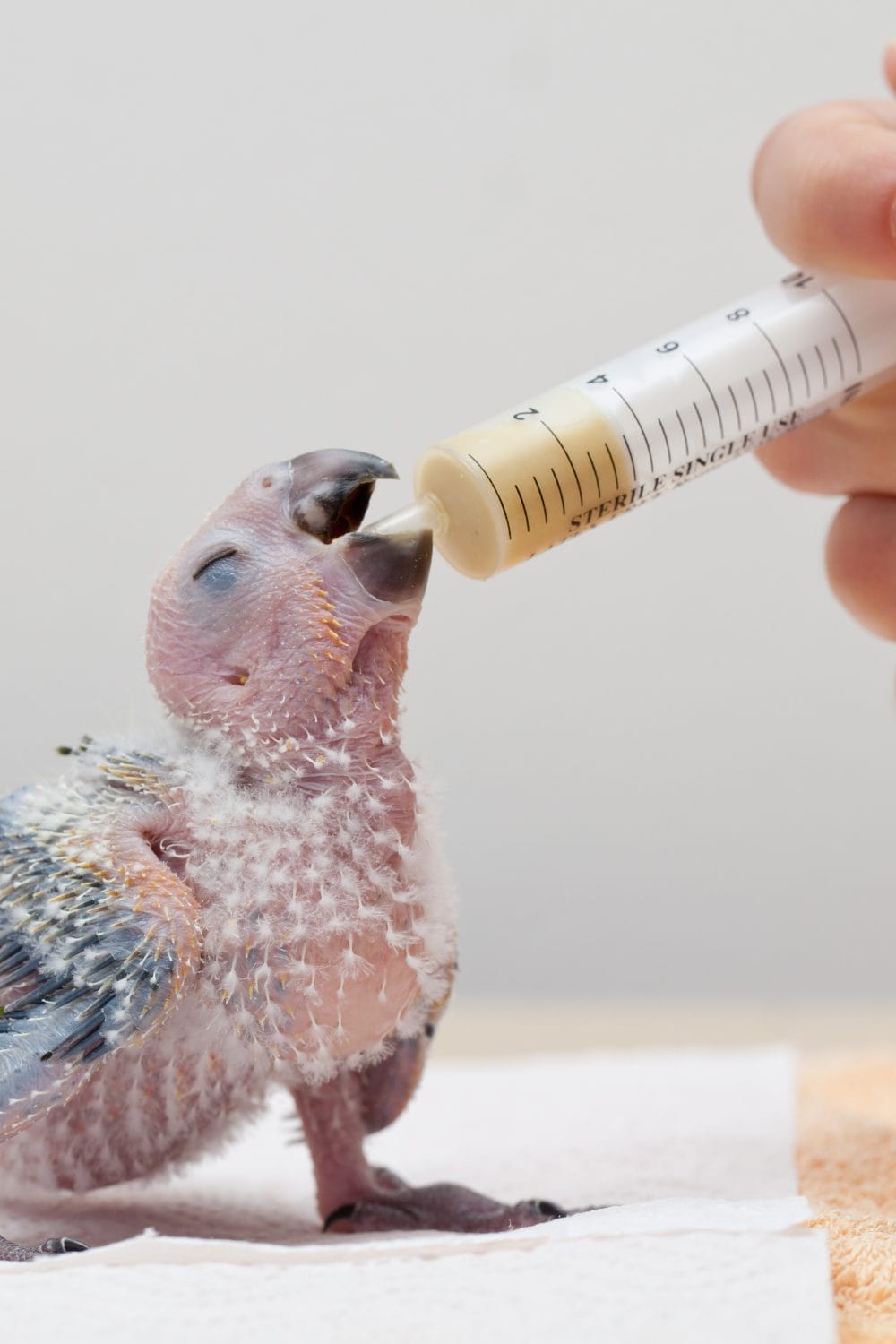
Conclusion
Being a new parrot parent is a journey filled with learning, laughter, and unconditional companionship.
While parrots require more attention than your average pet, the bond you build is incredibly rewarding.
By understanding their needs, avoiding common mistakes, and embracing your role as a caregiver and companion, you’re well on your way to becoming a responsible and loving bird owner.
Your parrot isn’t just a pet — they’re family. And with the right care, they’ll be your feathered best friend for years (or even decades) to come.
FAQs: Bird Care 101 for New Parrot Parents
The best beginner parrots include budgies, cockatiels, and green-cheeked conures. They’re smaller, easier to care for, and less demanding than larger species like Macaws or African Greys.
Parrots should be fed fresh food twice a day — typically in the morning and evening. Make sure they always have access to clean water and remove uneaten fruits/veggies after a few hours to prevent spoilage.
While it’s possible, parrots need social interaction. If you work long hours, provide plenty of toys, puzzles, and foraging activities to keep them engaged. Spend quality time with them before and after work.
Yes, but only under supervision. Ensure the environment is bird-proofed: turn off ceiling fans, close windows/doors, and cover mirrors. Consider wing clipping only if advised by your avian vet.
Absolutely! Parrots enjoy bathing and it helps maintain feather health. Offer a shallow dish of water or mist them gently 2–3 times per week, depending on their preferences.
- Best Shampoo for Sensitive Skin Dog Grooming: 2026 Guide - February 12, 2026
- 40+ Aesthetic Names for White Dogs (2026 Unique & Rare List) - February 6, 2026
- 50+ Cool Snake Names for 2026: Expert-Picked & Rare Ideas - January 29, 2026


GIPHY App Key not set. Please check settings